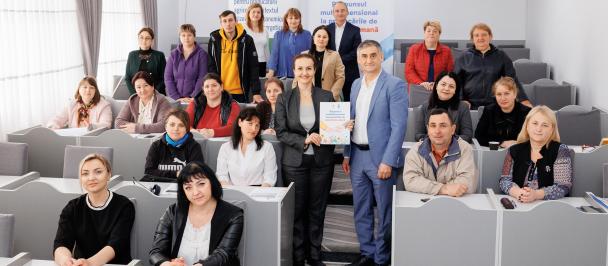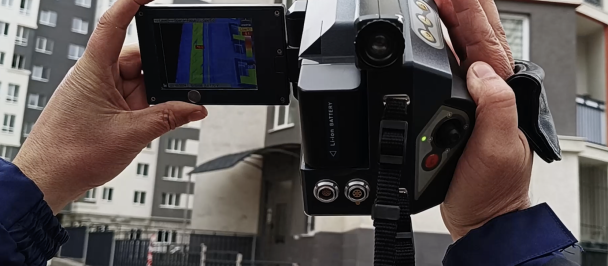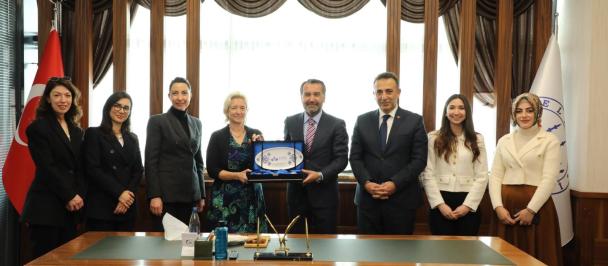"Luku: Cultivating the Seeds of Resilience and Collaboration in Tuvalu"
June 29, 2023

Olepa picking fresh chillies
When 75-year-old woman Olepa Siniala, from Funafuti, Tuvalu, heard on the radio about the Department of Agriculture conducting a home garden training programme, she decided to join. She was grateful for the opportunity to receive this training during the COVID-19 lockdown, which motivated her and others in the Matakaiga Lukuga – a local women’s group - to participate in community agricultural activities. As a result, they initiated a home garden project called Lukuga Home Garden.
Overcoming Obstacles in Tuvalu's Home Gardening Movement
Tuvalu, an atoll in the Pacific Island nation, faces unique spatial challenges. Funafuti, the main island where the Lukuga Home Garden is based, experiences high population density despite its elongated shape, which limits available land for various purposes. Unlike other Pacific islands, there are fewer agricultural plots in Tuvalu, further exacerbating the amount of usable land.
With assistance from the United Nations Development Programme (UNDP) Pacific Office in Fiji through the Governance for Resilient Development in the Pacific (Gov4Res) project, the Matakaiga Lukuga group received a project grant under the project’s Small Grants Initiative, and purchased materials for a home garden and organized home garden training to demonstrate home gardening techniques, with the Department of Agriculture.
During the training, Mr. Semisi Tonga, the Ministry’s Agriculture Liaison Officer, introduced the indirect planting method, which is a more space-efficient approach that minimizes soil and water requirements. Recognizing the limited space available in some group members' homes, Semisi suggested sowing the seeds at the Department's nursery for optimal growth and access to water. Once the seedlings were nearly ready for harvest, they could be transferred to the members' homes. The Matakaiga Lukuga group agreed with this approach, and under Semisi's guidance and the support of the Department of Agriculture’s staff, they began planting.

Members of the Lukuga group joined by their husbands and children learning how to sow seeds.
Ms. Lauvao Leupena, the Gov4Res Resilience Officer, commended the training assistance provided by the Department of Agriculture and emphasized the importance of collaboration and partnership. She highlighted that the group needed not only to learn how to plant vegetables but also to understand the risks involved in having a home garden and how to overcome them in a place like Tuvalu. Water conservation is crucial in Tuvalu, given its scarcity for family use. Thus, using additional water for watering home gardens is not sustainable. By planting their vegetables at the Department of Agriculture’s nursery, the group ensured access to water and adequate growth space. Once the garden was nearing harvest, they would move it to their homes temporarily, with the Department of Agriculture pledging regular visits to provide ongoing support.
Ms. Lauvao said, “seeing the intersection of community, government, and development partners like Gov4Res in a home garden is a good step to resilient and healthy communities in Tuvalu”.
Collaboration and Knowledge Sharing Drive Tuvalu's Home Gardening Movement
At the core of the Matakaiga Lukuga group lies the concept of "Lukuga Home Garden," derived from the Tuvaluan word "luku," which means to come together and contribute to a shared purpose. Olepa, a member of the group, highlighted that despite the challenges they face in Tuvalu—limited planting space, water scarcity, lack of fertile soil, and high material costs for building home gardens—they firmly believe that by "luku" or pooling their local knowledge and skills, collaborating with other stakeholders, and investing their hearts into it, they can overcome these obstacles. This approach has the potential to enhance their access to a healthy and diverse range of vegetables, reducing their dependence on imported produce or waiting for it based on boat schedules.
By embracing the essence of "luku," the Matakaiga Lukuga group strives to create a vibrant and sustainable home gardening movement in Tuvalu, where communities come together, contribute their collective efforts, and work towards a shared purpose of resilience and self-sufficiency.
Semisi, from the Department of Agriculture expressed his delight that Matakaiga Lukuga is coming together for this initiative. He emphasized that the department is always willing to assist the community, and their roles in this regard are clear. However, he believes that a crucial role is to encourage both the group and the department to continue working together, as sometimes these initiatives can lose momentum, and the wait for harvest can diminish interest.
In this aspect, he sees Gov4Res as a bridge connecting the group and the department through regular communication and monitoring visits, ensuring that partnerships are always maintained and fostering continued collaboration.

Olepa picking fresh chillies
During the training, as the group continued planting, Olepa observed from her chair and then stood up to pick some fresh chillies, explaining that she would use them for dinner that night. She turned around to witness the planting scene once again and smiled, saying, "Everyone is coming together - husbands and the children are helping out too, they all want to have fresh vegetables one day. Together, we plant, and together, we will embark on this planting journey and eagerly anticipate the produce. Our group also wants to implement the same programme in the outer islands, sharing our knowledge of home gardening with our relatives there. We want to tell our relatives that despite the challenges and risks we face, we can be resilient, and we can still strive for a healthy life. We are very small, we must come together, and we must 'luku'."
The Gov4Res Project, is implemented by the UNDP Pacific Office in Fiji and partners with the Australian Government, the Korea International Cooperation Agency (KOICA), the New Zealand’s Ministry of Foreign Affairs and Trade (MFAT), the Swedish International Development Cooperation Agency (Sida), and the United Kingdom Foreign, Commonwealth & Development Office (FCDO).

 Locations
Locations


